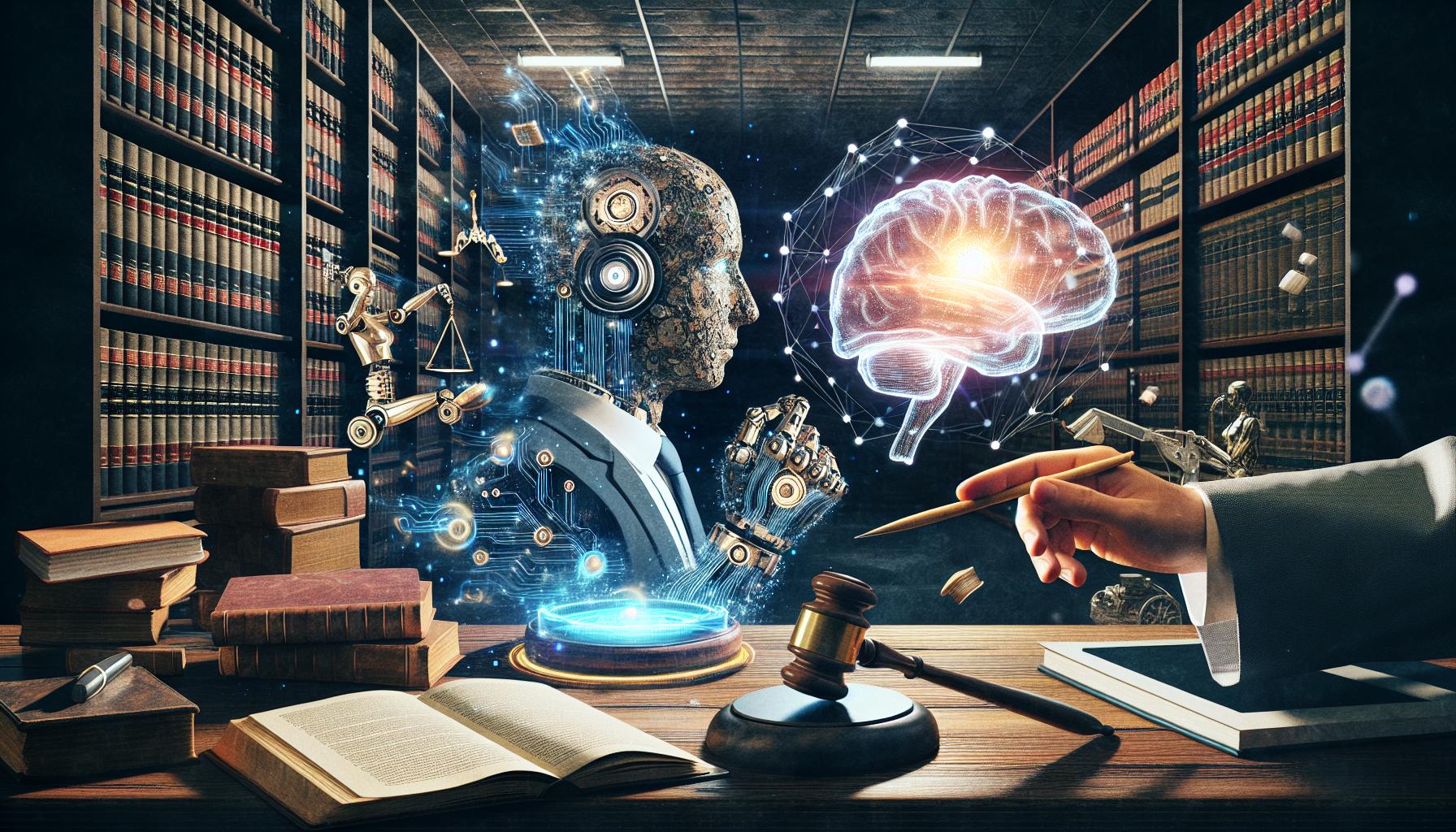Streamlining Legal Workflows with AI: Boosting Efficiency and Accuracy

Introduction: The Promise of AI in the Legal Industry
The legal industry is renowned for its complexity and the substantial amount of paperwork involved. From document review to legal research, these tasks are not only time-consuming but also require meticulous attention to detail. In recent years, Artificial Intelligence (AI) has emerged as a game-changer, offering innovative solutions to streamline these workflows. By automating routine tasks such as contract analysis and case law research, AI enables legal professionals to redirect their focus towards strategic planning and client engagement. This transformation not only enhances the efficiency of legal operations but also improves accuracy, positioning AI as an invaluable partner in the legal profession.
AI in Document Review: Revolutionizing Contract Analysis
One of the most labor-intensive tasks in the legal industry is document review, particularly contract analysis. Traditionally, this process involves sifting through countless pages of documents to identify relevant information, a task that is both tedious and prone to human error. AI technology, however, is revolutionizing this process. Through machine learning algorithms and natural language processing, AI can quickly analyze large volumes of contracts, identifying key clauses and flagging potential risks. This not only accelerates the review process but also enhances accuracy, reducing the likelihood of oversight. By automating contract analysis, law firms can allocate their resources more effectively, allowing legal professionals to focus on more complex legal issues and client interactions.
Enhancing Legal Research with AI: The Case Law Advantage
Legal research is another area where AI is making significant strides. Traditionally, researching case law requires extensive time and effort, with legal professionals manually searching through vast databases to find relevant precedents. AI technology simplifies this process by utilizing advanced search algorithms that can quickly scan and retrieve pertinent case law. Furthermore, AI tools can provide insights and predictions based on historical data, aiding lawyers in crafting more informed legal strategies. This not only saves time but also ensures a higher degree of accuracy in legal research, allowing lawyers to better serve their clients.
AI's Impact on Legal Strategy and Client Interaction
With AI handling the more mundane aspects of legal work, professionals can dedicate more time to strategic planning and client interaction. This shift allows lawyers to engage more deeply with their clients, understanding their needs and developing tailored legal strategies. AI's ability to process and analyze data at high speeds means that legal professionals can make quicker, more informed decisions, enhancing the overall quality of legal services. Additionally, AI tools can assist in predicting case outcomes, enabling lawyers to provide clients with realistic expectations and strategic advice.
Increasing Capacity and Maintaining Precision with AI
By automating routine tasks, AI enables law firms to increase their capacity to handle more cases without compromising on accuracy or efficiency. This scalability is particularly beneficial for firms looking to expand their client base or manage a growing workload. AI's precision in data analysis ensures that even as the volume of work increases, the quality of legal services remains high. This capability to balance quantity with quality makes AI an indispensable tool for modern law firms aiming to stay competitive in a rapidly evolving legal landscape.
Conclusion: Embracing AI as a Partner in the Legal Profession
As the legal industry continues to evolve, AI stands out as a pivotal force driving efficiency and accuracy in legal workflows. By automating labor-intensive tasks such as document review and legal research, AI frees up valuable time for legal professionals to focus on strategic tasks and client interactions. This not only enhances the quality of legal services but also positions law firms to handle more cases with precision. While AI is not a replacement for human expertise, it is a powerful ally that can augment the capabilities of legal professionals. As AI technology continues to advance, it is crucial for law firms to embrace these innovations, integrating AI into their workflows to stay ahead in a competitive market. The question remains: how will law firms adapt to this technological shift, and what further innovations can we expect to see in the legal industry? As AI continues to evolve, the potential for its application in the legal field is vast, promising a future where legal professionals can achieve even greater heights of efficiency and accuracy.




